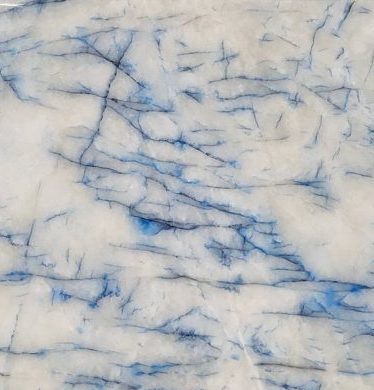Quartz is made from pure natural quartz, an extremely hard stone crystal mined directly from the earth. Quartz is the hardest non-precious stone that can be found in the earth’s surface.
Cleaning Routine
For Quartz with a polished finish, we recommend you use a mild household cleaner, such as 409®, Fantastik®, Lysol®, or Windex®. In case of stubborn spills or stains, soak the area for up to 10 minutes with one of the above cleaners.
Honed Quartz does show daily living more frequently and therefore requires more daily maintenance than Polished Quartz products. For your daily cleaning routine we recommend Countertop Magic™ follow instructions on bottle of cleaner.
- Does a Quartz surface require care and maintenance?
No, a Quartz surface is incredibly maintenance-free because it is non-porous. Simply wipe up with warm water. Unlike granite, a Quartz surface will NEVER require regular sealing and there is no risk of staining. - Is a Quartz surface resistant to surface damage?
Quartz surfaces are structurally more resistant to surface damage than other stone. However, all stone can be damaged by excessive force or pressure. - Are Quartz surfaces resistant to staining? Will Quartz stain?
Quartz surfaces are extremely resistant to staining. Products as wide-ranging as fruit juices, liquid food coloring, coffee, tea, wine, soft drinks, nail polish/remover and felt-tip markers have been tested on Quartz surfaces-none of these materials left a stain. Its non-porous surface also greatly reduces the potential for bacterial growth from food absorbing in your countertop. - Does a Quartz surface withstand heat? Can I put a hot pan or pot on it?
A Quartz surface is as resistant to heat as any stone countertop available on the market. However, any natural stone surface can be damaged by sudden and rapid change of temperature, particularly near the edge of the surface. Like any natural stone surface, Quartz may not withstand the direct transfer of heat from pots and pans and other cooking units such as electric frying pans and griddles, and some crock-pots or roaster ovens and heat lamps. Therefore, the use of a hot pad or trivet is always recommended. - Are Quartz surfaces safe for food preparation?
Yes, Quartz surfaces are non-porous and have been certified by NSF International for food and splash zones in commercial kitchens. That is the same certification as stainless steel. There is no safer countertop for food preparation.
